Could you first introduce yourself to the reader?
My name is Nicole Ben-Simon, I’m the mother of three beautiful daughters, and I’ve written a book!
What’s the book about?
The book is called ‘Lucky and Mucky’ and the main character is a little girl called Karma. She goes on a little journey inside her head and finds out she has two voices, or friends if you like, that encourage her to behave in certain ways. She goes on a journey of self-discovery.
Is there any significance to her name?
Absolutely. It’s a spiritual book, it’s a self-aware book, and karma is really ‘what goes around comes around’ - what you give in you get back - so it’s quite a powerful name.
Who are Lucky and Mucky?
Lucky is her true self, who she is naturally: a loving, beautiful person. It’s the side that is warm and fuzzy and makes her feel good about herself and makes her nice to other people. We are all born like that, I think. Mucky is the opposite; the ego side, the side that tells you you’re not good, or encourages you to feel separate from others, and do things that aren’t nice. It’s the part of the self that - if we are aware of it - we can control and make choices. It really is like the battle of the two wolves inside us and it’s the wolf that you feed, the feeling that you feed, that grows. We all have that choice about how we want to live our lives - based on Mucky, or based on Lucky.
When did you write the book?
I wrote the book three years ago, and started really working on it about six months ago, and found an illustrator - everything just happened by miracle, actually, it’s so bizarre. I felt like this book really needs to come out.
When does the book come out?
I was invited to do the book launch at the Classic Cinema in Elsternwick as part of a children’s International Film Festival. I’ll do a live reading for the people in the cinema and have the beautiful illustrations up on the screen. This is just another wonderful opening that I've been given and that I'm so grateful for. It’s happening on the 29th of April at 4pm and it’s a free family event and its just going to be beautiful. There will be a live reading, book signings, and lots more.
Is the book just being released in Australia?
I think it’s going to become worldwide. I really do. It’s starting off in Australia, but I think the world needs it. I’ve got good feelings about it.
Are you considering writing a sequel?
Yes, I already have ideas! I’m trying to focus on this now, but Lucky and Mucky have so much potential. There are so many ways in which they can be brought to life.
What ages is it aimed at?
I would say 5-10, but to be honest, the messages of the book are for all ages, and I think adults who will be reading this to their children will actually be learning something for themselves. Even children younger than five still get the message of the good and the bad, so they will get it on one level, but as the child gets older they’ll be able to read between the lines and really engage with what the message is: that you can remove yourself from toxic environments and situations, and you can step back and take some nice deep breaths. So it’s also teaching children a bit of mindfulness and meditation, so that they can make clear decisions with what’s going on for them.
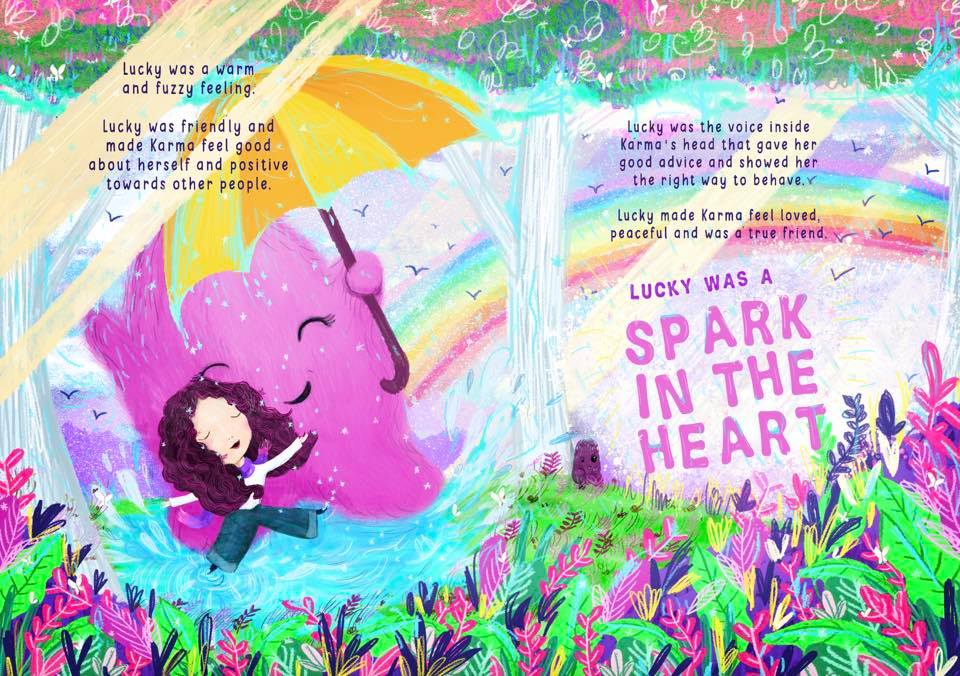 Why that age range?
Why that age range?
Firstly, I’m a mother, and bringing up children has shown me that when children are young they’re pure and they’re authentic and they’re very true to who they are, and as they get older pressures to conform, school pressures, friendship pressures, change them, and they start creating masks. They think that they have to be a certain way, they have to dress a certain way, they have to be good at certain things, they have to be popular, so it’s really teaching the child from a young age, when they’re still authentic and pure, that they can continue to be who they are regardless of the pressures outside. And the age of 5 is school age, it’s a whole new world out there with new expectations, so it’s a good age.
Was the inspiration for the book your experiences as a mother?
Yes, I’ve seen growing pains; there have always been situations, especially with girls, where there are issues with school and friendships and there's always that feeling that you need to conform- you’ve got to be in the basketball group or you’ve got to be in the dance group - and I think that we need to empower our children at a young age to believe that they can be who they are. If someone doesn't accept them it’s okay, and they shouldn’t let that bring them down and make them have this image of themselves as a failure.
I saw the big difference with my children, from being a cute, happy child in kindergarten to starting school and having all these expectations, coming home saying ‘I want my hair this way because everyone’s got their hair this way’; it’s like losing yourself in order to conform.
There’s a clear link to mental health in the book - why do you think mental health is important?
There’s a definite link between Mucky and depression, yes. I myself have had experiences - I have a lot of knowledge of the ups and the downs of life. I’ve been through family struggles, so I’ve had times in my life when things have been difficult, and I’ve had the choice that I could let my Mucky win and I could let the difficult situations become me. Or I could accept that they’re there but know that it’s a stage and that I can overcome it and try to focus on my Lucky: the goodness in my life, the things that are positive in my life, so that I don't drown in the negatives. I’m constantly pouring energy into the things that make me feel good about myself, and it’s almost like starving the side that’s constantly needing to challenge you. And I’m not saying run away from challenges because everyone has challenges, but the more that you allow Mucky and your challenges to grow, that's when you lose yourself.
So, yes, there's a definite link with depression, and I know it’s very common, especially among adolescents and teenagers, and a lot of it does come from a lack of self-worth and a lack of self-love. And that comes from the inability to know that you have the choice to not rely on someone from the outside to make you feel better, but rather learn to do things for yourself that help you bring out the Lucky in you. There is that correlation between your environment and how you feel about yourself, and if your environment is full of Mucky it’s very likely that eventually you will feel that depression.
Many people think mental health is too sensitive a topic to discuss with such a young age group - why do you think that it’s both acceptable and important to bring it up at this age?
Because when I suffered from depression I didn't even know what depression was, and I was in my 30s. I think that children need to understand the concept of feeling blue, of feeling cloudy, of feeling dull. It’s part of life, you know? We can't always be happy. There is a balance of happy and sad and it’s a healthy balance, but it’s when it becomes more extreme that it can become depression. I think, for me, not knowing anything about what depression was didn't do me justice. I had to go and look it up, and I think a child will be more empowered when they can recognise and put a name on it, and Lucky and Mucky are such cute names and the characters are really expressing what those feelings are, so it’s not scary at all, it’s just happy and sad, really.
I think at this age it’s a very easy way in; it’s a very easy way to show them that there are two sides and they have control of them. This age is a good time for them to be aware.
Why do you think the arts are important?
I think art is an expression of self, and just as art is unique, everybody has a different quality in them - you could be good at art, you could be good at music, you could be good at sport. I think art is self-expression and self-expression is what this book is about. It’s about individuality and it’s about embracing who you are and not just going with the herd. I think creating this concept through beautiful illustrations - my illustrator has created this really beautiful, easy-to-read story - is what will engage the child. The arts are a very important way to express a message.
Did you always want to be an author?
No, this is a very sudden thing for me. I love working with children - I do music with children - but I had this very strong…calling, if you like. It was this feeling inside of me that there was this concept for a book, so I started just jotting things down and then I ended up on my computer and before I knew it I had a book! And then I was looking at these words and I was thinking, ‘Okay. I’ve just written a book. What comes next?’ To be honest, I had no idea what to do with it, so it just sat in my cupboard for three years.
Now I meditate every day and six months ago, in meditation, I had this strong image of this book that needs to be brought back to life, so I went and found it in my cupboard and looked at it and reread it and thought, ‘Wow. This is amazing!’. I hadn't seen it for three years and I thought, ‘Did I really write this book?’
I decided this book needed to happen, and I called for the universe to send me the people I needed. Within three weeks I came down to this cafe where we’re sitting right now to get my morning coffee, as I do every day, and my illustrator was sitting at the next table talking about illustrations, so I introduced myself and I said are you an illustrator and she said yes and I said do you do children’s books and she said yes, that’s what I specialise in, and it was just something beyond me. And then I found out she lives in my building! It’s just unbelievable!
Many things like that have happened with this book, and I really do feel like the universe is encouraging me to bring this out. I know that the messages need to come out; there are lots of people who need this book, because it really opens the child up to being able to talk about things to their parents. I think in today’s day and age everyone’s on their phones and running around with busy lives, working hard, and I think this book encourages the parents and child to engage and talk about their experiences. Adults can even talk about if they ever felt left out when they were a child, and how they’ve overcome it, so it really gives parents and children a really beautiful opening.
What advice would you give to young people who want to become authors?
Well, I’m just thinking about the word 'authentic' and the word 'author'; it’s almost the same word. I think that when you are writing and coming from a place that touches your heart, when you have a true understanding of something, I think that’s what makes a book stand out from another book. Because the person reading it can feel the wisdom from [your] experience. I really do think it’s about being authentic, being real, being true to how you feel and what you believe - and wanting to send a message that will make a difference in the world. If that's where you’re coming from I think that's an amazing foundation.
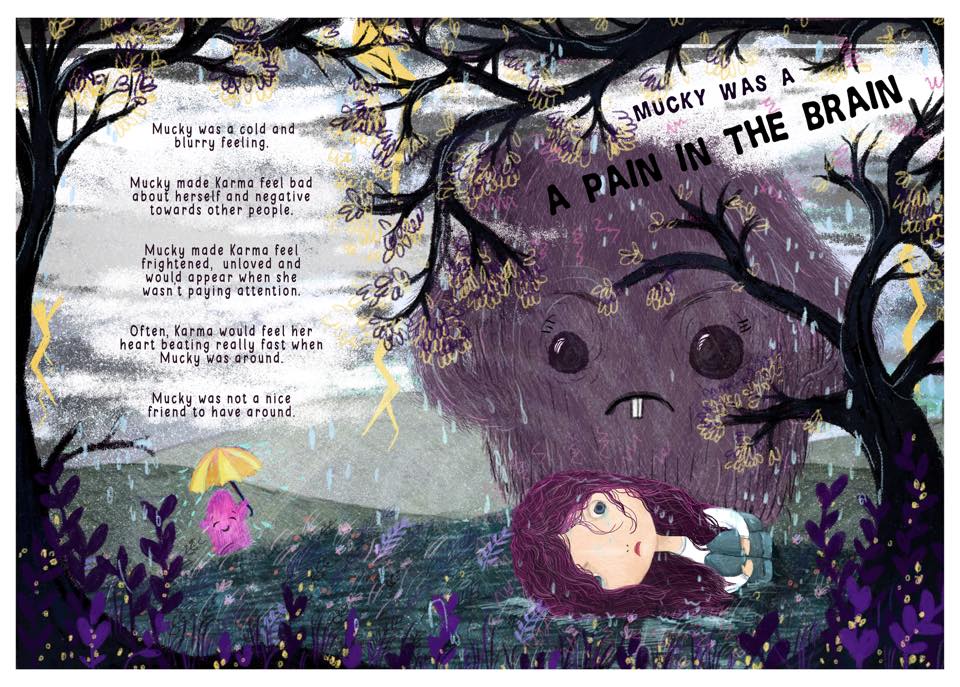 What advice would you give to people struggling with mental health issues?
What advice would you give to people struggling with mental health issues?
My advice is always check in with yourself. Meditation is my go-to place; every day I check in with myself - how am I doing, what am I struggling with now, what am I asking for, what do I need - it’s almost having a dialogue with your inner self and making sure that you are nurturing who you are and what you are. The minute you don't do that, and you allow other people to take over and control you, and you listen to what other people think you should be doing, you’re not actually listening to yourself.
Inside of us is our compass, our inner compass, of who we are, what we want and what we’re here to do. It’s all within us, so the biggest mistake is actually letting someone on the outside decide for you - and that includes parents as well. When we’re old enough we feel like we need to conform and do what we are told, and sometimes it’s actually counter-productive and it stops us from feeling free to do whatever it is that feels right. So if you love music and you want a career in music and your parents want you to be a lawyer, are you pleasing you or are you pleasing your parents?
For me, I was in a marriage that wasn't helping me grow and that partnership wasn't helping me to express who I really was, and that's where my depression came from. So it’s having an inner dialogue, it’s being authentic to who you are, being empowered to say and do and be who you are without fear, because fear - fear is Mucky, fear is your inner voice telling you you can’t, fear is the people around you telling you you can’t, and empowerment is the opposite of fear; actually saying, I’m doing this, and just going for it, and watching how, if you are being aligned with yourself, the universe opens up so many doors.
Thank you so much to Nicole for taking the time to do this interview, and best of luck with the book launch!
This interview has been edited for length and clarity

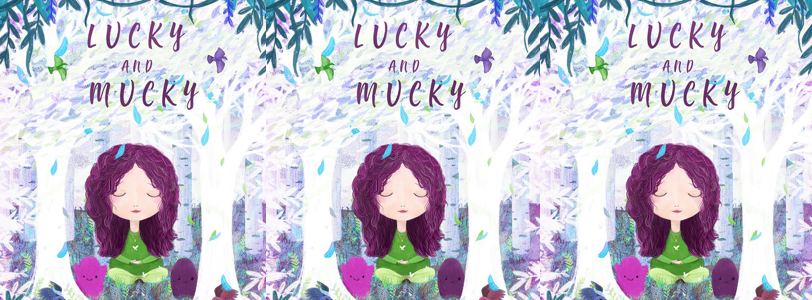
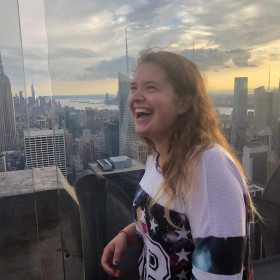
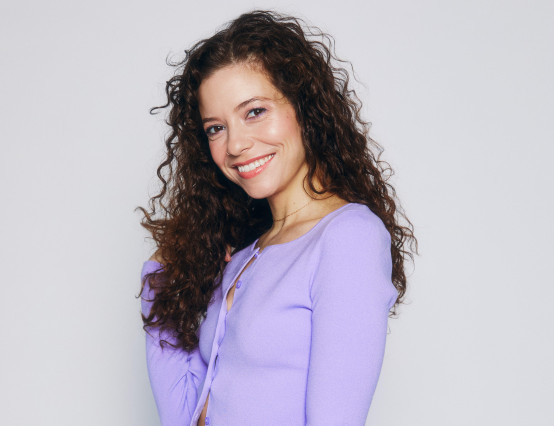
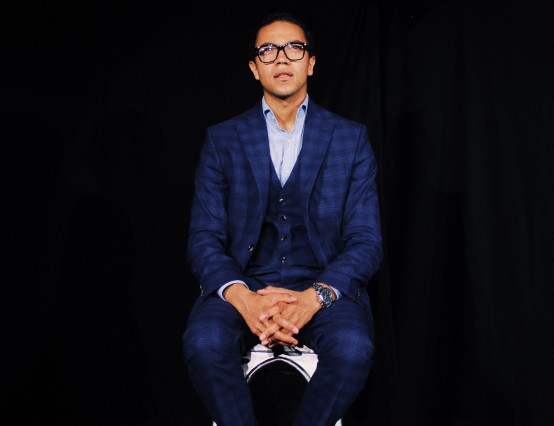
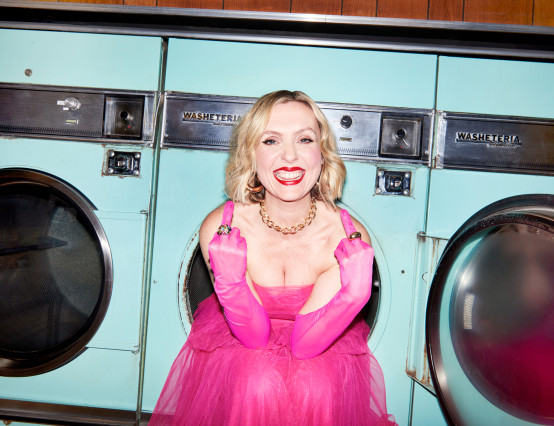



0 Comments